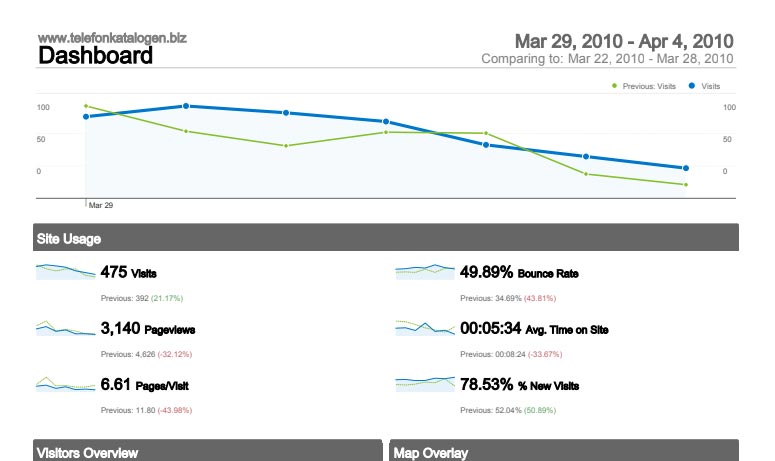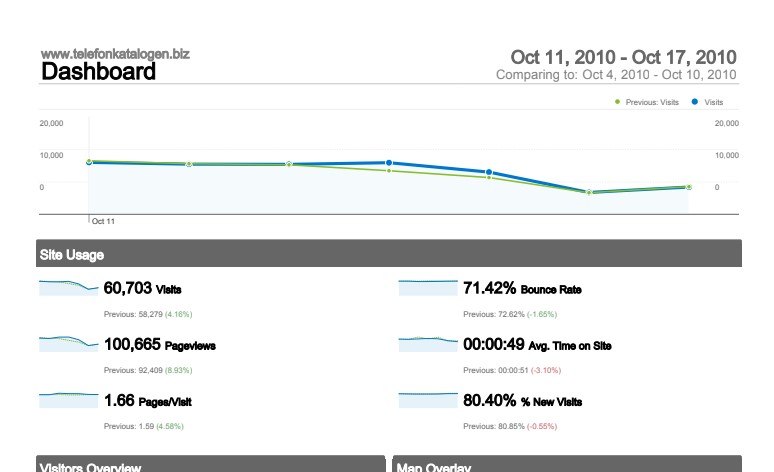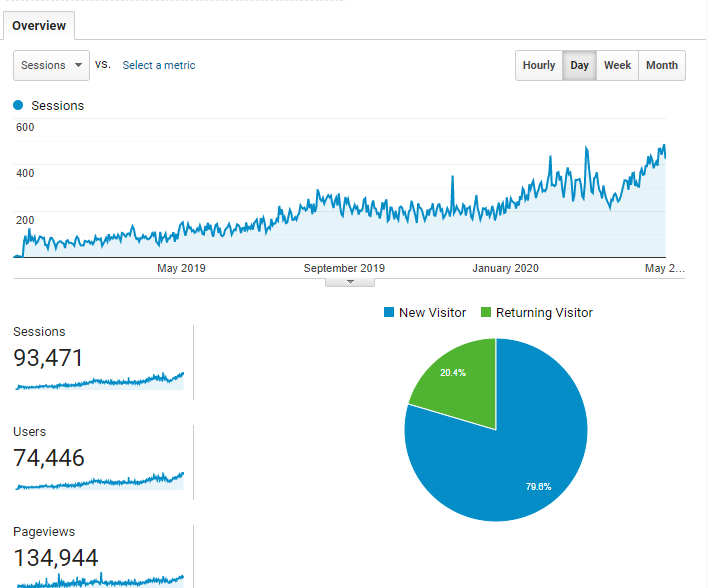You’ve heard this before, but it never hurts to be reminded: search engine optimization is crucial for any business.
We already know that we can use keywords in our content or on the page title to increase the chances of being found on search engines. But there are 7x types of keywords you may not have considered that will also help your site rank higher in search results.
Besides using long-tail keywords (i.e., “how do I get more customers?”), here are some others you should consider:
Keyword sets such as “best restaurants near me” or “what’s new?” are specific questions people ask themselves.
Table of Contents
The 7 types of keywords that will increase search traffic on your blog
You work hard to create a blog that is informative and helpful for your readers. But did you know there are seven types of keywords, each with its benefits? Today we’re going over them in depth so you can update or start fresh on the best ones for your content.
Keyword research:
A lot has been written about keyword research about search engine optimization (SEO). In this article yet, I will discuss its importance from another angle – how certain words impact reader impressions of what they read online. Research by John Dickinson shows us how crucial emotion-laden language maybe when building an audience around blogs like yours!
There are seven different kinds of keywords worth considering adding into posts now or later;
Type 1#: Generic Keywords
In the modern age of blogs, many people understand that they need a “hook” to attract readers. Generic keywords are words or phrases used with great frequency on the Internet and can be found all over social media platforms. These platforms include Facebook, Twitter. This serves as an essential function for bloggers looking for help getting their posts shared by others who will also share those same generic keyword links back onto other channels.
Generic keywords help make your blog writing more effective. Knowing which ones to use and how often is an integral part of the art of persuasion that any good blogger should know well.
In today’s blogosphere where originality is coveted but often hard-pressed. It has become common knowledge among writers without much experience blogging. But if you want your content seen, then you must include these popular tags, which may at first seem like unnecessary work. Only time will tell how effective this strategy proves out.
Type 2#: Brand Keywords
In the modern era, people are looking for more information on brands. Blogs provide a great source of knowledge about new products and services and how to use them. Brand Keywords is one way to write blogs with an informative tone to inform readers about something they may not be aware of or need help understanding.
In blog writing, keywords are an essential part of the content. Brand Keywords help to relate to your company or product to help make it more recognizable and findable by search engines.
Brand Keywords can be used as a powerful marketing tool when blogging because they will give readers information about what you offer while also helping them navigate your posts easier. Using these words throughout different blogs on our website, we were able to see improved rankings for specific terms related only to us!
In previous years there has been increased demand for content marketing from companies who want greater visibility online. Also, social media marketers have found that their messages often get lost among the other posts as consumers are bombarded by so many options every day. A blog post provides writers with an opportunity to reach thousands, if not millions, of potential customers at once while remaining under control since everything is written will show up only on Google search engines.
Type 3#: Broad Keywords
Broad Keywords is a way to categorize blog posts on the web. Broad keywords are words or phrases that describe your post’s content, which may be helpful for readers who need more information about what you’re trying to say to decide whether they want to read it from start to finish.
Keep your blog post content informative and actionable. A great way to perform this is by using broad keywords throughout the blogs.
Ex: “Broad Keywords” was first coined by SEO strategist Brian Dean at Backlinko. He created an infographic of how Google might rank blogs based on their topics and broad keyword usage and use SEMrush Rank (which has since been discontinued).
Type 4#: Exact Keywords
When talking about the importance of using exact keywords in blog writing. It’s essential to consider how search engines find and rank blogs.
Search engine crawlers are programmed with a ranking system that determines which pages on your website they decide will be shown first when researching what you sell online. This means if people can’t get past page three or four because there aren’t any relevant keyword matches before then. Those potential customers could go elsewhere for their purchase needs, which means more money is lost from not being found by searchers at all!
Type 5#: Long-Tail Keywords
The Long-Tail Keyword is a keyword that does not have much search volume but has enough traffic to make it worthwhile. Long-tail keywords can be used in conjunction with other content on your blog and help you rank higher for high-value phrases even if they are lower ranked themselves.
Long-tail keywords are often the key to getting on page one of Google. It is challenging for a high-paying advertisement or popular blog post to get there without these long-tail keywords in place. According to Wordstream, up to 87% of web searches have at least two words, and 60% contain 3+ keyword phrases. This makes it possible that users will click your site if you had those important terms incorporated into your content from day 1!
Type 6#: Buyer Keywords
What are Buyer Keywords in blog writing? A buyer keyword is a keyword that can be found on websites, blogs, and other content. It speaks to an item or service the website wants people looking for, so they will come back often, for example. If you’re selling iPhone, then “buy” would be one of your buyer keywords. This is because it’s related to what you want customers buying from you in the first place! So, when including these words in posts, users should overwhelm readers with information about something irrelevant. Else, mention enough times throughout their article/post. This is where those who read might click over out of curiosity, leading to more sales!
Type 7#: Tyre Kicker Keywords
Tyre kickers are a few words that readers use to describe blog posts.
Tyre Kicker is a two-word phrase used in blog writing to denote that the person publishing has added their own opinion of something said or written. The term Tyre Kicker Keywords refers to words and phrases often found in blogs, such as “in my humble opinion.”
Tyres and tires go hand-in-hand. So, it’s no surprise that most of the time, when someone is talking about Tyre Kicker Keywords in blogging, they’re referring to what these tire terms mean for your content strategy as well.
Tyre Kicker Keywords aim to give you a brief overview of how the Internet works so that we can better understand it and its impact.
The ultimate goal with blog writing and any other form of written communication should be engagingly conveying information. The effective way for us to do this is by understanding what our audience wants from the material they are reading or listening to.
Which Type of Keyword Should You Be Using?
A good keyword can help you reach new customers: the more people that find your business, the greater chance they will buy from you.
How do keywords work? Keywords are used on search engine results pages to show what a person is looking for when searching online and in social media posts where someone might ‘hear’ about an item through their friends or followers without doing any research themselves. (For example: after seeing something shared by one of her favorite bloggers). So how does this all add up? It means businesses need to use relevant words, so consumers who have never heard of them before come across them during these searches!
No one keyword can do everything. For any given piece of content, you must use the right keyword to match its purpose.
Rather than targeting the exact keywords as everyone else, focus on long-tail keywords that have been shown to convert well for you.
The long-tail keywords are the right balance between:
- The competition increases the chances of ranking on search engines and encompasses any theoretical qualities a particular website may rank high for.
- Traffic (the number of people who have come to your page)
- Purpose
- The conversion processes
Because of their popularity, long-tail keywords are the best keyword to target for search engine optimization.
Should traffic or intent take priority on keyword use?
The answer to this question is not a straightforward one. If traffic takes priority, Keywords will be more likely used in the title and headings of your content. So, if intent takes precedence, people might find it less helpful as they cannot navigate what you’ve provided them with. especially when there’s an error on google chrome or their device has no internet connection whatsoever
Should Traffic or Intent Take Priority? The answer to this question is not a straightforward one because it depends on which metric matters most—either quantity (more visitors) over quality (a better user experience).
In the digital world, it is essential to know what your audience wants from you. If they are coming for a particular topic, it should be on that path and not distract them with ads. Also, other content unless there’s an opportunity cost of their time reading through extraneous information.
If traffic takes priority, make sure keywords are used in all the places where people may find them, like title tags, meta descriptions, etc. This will also help keep those who come into contact with relevant information, leading to higher conversion rates. Also, lower bounce rates since most visitors won’t click away when viewing topics related to their interests.
Conclusion
What are keywords, and why do I need them? Search engine optimization is one of the essential aspects of every business. Keywords are said to be words or phrases that a person might use when searching on Google, Bing, Yahoo, etc., to find what they’re looking for. Using these exact keywords in your website content will help you show up higher in those searches! Helpful tip: don’t throw out random words like “dog” or “house.” The best way to know which keyword(s) to focus on is by researching how people describe their problem/need. Besides using those terms, yourself throughout your site content.
FAQs
What are the 7 types of keywords that will increase your search traffic?
The most powerful way to increase your search traffic is by having various keywords in the content you produce. The seven types are:
- Generic Keywords
- Brand Keywords
- Broad Keywords
- Exact Keywords
- Long-Tail Keywords
- Buyer Keywords
- Tyre Kicker Keywords
How do keywords increase traffic?
Keyword Traffic: Tips for Increased Traffic
- Identify blogs topics that your audience will find helpful and valuable.
- Focus on your content production efforts to target high-value, commercial intent keywords.
- Too many advertisers focus on search keywords without organizing them into ad groups.
- How do I optimize keywords?
- The process of optimizing a webpage for “organic” keywords entails following 12 steps.
- Choose Which Keywords to Focus On.
- What keywords should you focus on for your posts?
- Check to make sure important content is indexed.
- To create a unique index, avoid words that have been indexed more than once.
- Improve the Search Listings for The Keywords.
- Add a headline.
- How to improve the contents of a document.
- Look for Text in Images.
How to find best keywords for SEO?
How to do keyword research
- To get started, research your subject matter and narrow in on a niche that interests you.
- Sit down to define what you hope to achieve from this project
- Brainstorm a list of focal points.
- Make a list of keywords.
- Use keyword research tools to improve your SEO.
- Understanding the intent of the search is essential.
- Identify long-tail keywords.
- Find out what the competitors are performing to find new customers.
How many keywords should I use for SEO?
You can have one page for a particular question, but most pages answer any queries. Instead of targeting two or three keywords per page, it’s more effective to target a few close variations. Promote the number of members on your team with no more than four.
Are keywords important for SEO?
Keywords are essential for a company’s SEO, but they’re also crucial for off-site content and social profiles.
To use keywords in your content, you need to create high-quality content. Also, unique articles and tweets that convey relevancy while using your target keywords when appropriate.
Does Google use keywords for SEO?
Google’s search engine currently doesn’t use keywords listed in the “keywords” meta tag for web searches.
Meta keywords are essential for SEO. They should be a prioritized part of your internet marketing strategy.
Google does not appear to use the meta keywords element, and Bing has told us that they may use them to identify when a page is spamming.
How do I improve my Google SEO ranking?
These tips can help you improve your search engine ranking and make more effective SEO for your website.
- Publish relevant content.
- Add new articles to your blog.
- Metadata.
- For your site to generate links, you need a link-worthy website.
- Use descriptive alt-text tags.
What are Google SEO tools?
An SEO specialist is trained to help make your company more noticeable in web search results. The following SEO tools guide should help you to be well on your way to an optimized site. Also, it may be good to invest in an SEO professional who can audit your pages.
Share This Story







